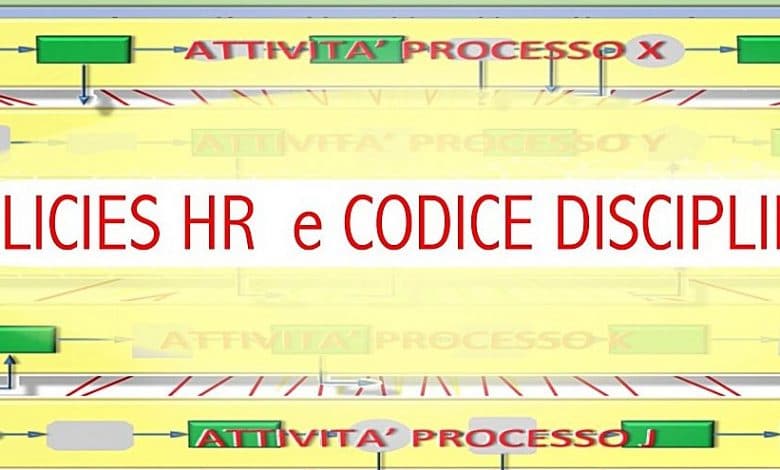
 The art. 7 of the law n. 300/1970, which, to protect the worker's interest in being able to express his defenses in the most meaningful way against an employer who intends to take disciplinary action against him, has introduced a system of procedural and substantial limits to the exercise of disciplinary power , has provided, in the first paragraph, that "The disciplinary rules relating to sanctions, to the infringements in relation to which each of them can be applied and to the procedures for contesting the same, must be brought to the attention of the workers by posting them in a place accessible to everyone. They must apply what is established by agreements and employment contracts where they exist"
The art. 7 of the law n. 300/1970, which, to protect the worker's interest in being able to express his defenses in the most meaningful way against an employer who intends to take disciplinary action against him, has introduced a system of procedural and substantial limits to the exercise of disciplinary power , has provided, in the first paragraph, that "The disciplinary rules relating to sanctions, to the infringements in relation to which each of them can be applied and to the procedures for contesting the same, must be brought to the attention of the workers by posting them in a place accessible to everyone. They must apply what is established by agreements and employment contracts where they exist"
Cases in which the employer's burden of posting in a place accessible to all is eliminated
Having said that, there are two cases in which the employer is no longer responsible for posting the disciplinary code in a place accessible to all.
– Inability to post when the provider's workplace is a geographical area and not a production unit in an organizational sense
 First of all, it is clear that the burden of posting in a place accessible to all would necessarily disappear in cases where its implementation proves to be materially impossible. Consider the case of a medical-scientific informant of the drug, whose production unit in which it operates is the area or geographical area in which it has to move every day to visit the doctors who practice their profession there. In this case, since there is no production unit in an organizational sense or a room at the entrance/exit of which to post, the employer would only have to send the employee the file containing the disciplinary rules, attached to the registered letter ar, in which the employer, justifying the letter itself with the need to comply with the provisions of article 7, first paragraph, of law no. 300/1970, given the impossibility of posting in a place accessible to all , draws the worker's attention to the need to familiarize himself with everything concerning the disciplinary aspects and to operate in compliance with the provisions.
First of all, it is clear that the burden of posting in a place accessible to all would necessarily disappear in cases where its implementation proves to be materially impossible. Consider the case of a medical-scientific informant of the drug, whose production unit in which it operates is the area or geographical area in which it has to move every day to visit the doctors who practice their profession there. In this case, since there is no production unit in an organizational sense or a room at the entrance/exit of which to post, the employer would only have to send the employee the file containing the disciplinary rules, attached to the registered letter ar, in which the employer, justifying the letter itself with the need to comply with the provisions of article 7, first paragraph, of law no. 300/1970, given the impossibility of posting in a place accessible to all , draws the worker's attention to the need to familiarize himself with everything concerning the disciplinary aspects and to operate in compliance with the provisions.
Furthermore, it should be recalled that, as already anticipated in the previous paragraph 2.3), in the event that there are employees called to carry out work contractually at specific premises owned by third parties, natural or legal persons, the Court of legitimacy affirmed the need to proceed with the posting in the same premises (in this sense Court of Cassation, see Sez.Civ.Lav., n.247/2007) and, in our opinion, as already observed, very correctly, considering that, in in this case, the posting would be physically feasible.
– No need to post for behaviors that every natural person immediately perceives as illicit
The thought professed by the more traditional jurisprudence dating back to time was the opinion that the principle of the burden of publicizing the disciplinary matter could not be waived in any case.
The most recent jurisprudential magisterium and, in particular, that of legitimacy, has, however, for years now been univocally oriented (and one can only fully agree with this line of thought) in the sense according to which there is certainly no need, for the employer, to proceed with the posting, in all those cases in which the behavior is immediately perceivable by the worker himself as illegal, because it is contrary to the so-called ethical minimum or to rules of penal relevance, since the worker is well able to realize, even beyond a analytical predetermination of the prohibited behaviors and the relative sanctions by the disciplinary code, of the illegality of one's own conduct And this is now unanimously affirmed by the judiciary also with regard to the so-called conservative sanctions, while on the basis of the previous orientation, completely outdated for years now, in the case of adoption of conservative sanctions (i.e. different from the so-called expulsive sanctions of dismissal for just cause or justified subjective reason), the posting of the disciplinary matter was to be considered indispensable for the legitimacy of the sanction itself (see, ex plurimis, Cass., Sez.Civ.Lav., 21 July 2015 n.15218, Court of Cassation, Civil Labor Section, 26 March 2014 n.7105; Court of Cassation, Civil Labor Section, 03 October 2013 n.22626, according to which "the prior posting of the disciplinary code is not necessary, in the presence of the violation of the law and in any case of the worker's fundamental duties, recognizable as such without the need for specific provision, with the exception of behaviors that could integrate mere practices, for which the need would arise to make known that such behaviors are considered illegitimate".; Court of Cassation ., Civil Labor Section 27 January 2011 No. 1926).
Just to give an example, every worker is well aware that the theft or damage to company assets or the carrying out of acts of threat or violence against anyone constitutes conduct that assumes criminal law relevance or knows very well that carrying out activities in favor of third parties during illness clearly capable of compromising recovery, they practice behaviors of penal relevance or, in any case, illicit, without the need for the posting of a rule that expressly provides for them as sanctionable behaviours.
Therefore, we invite human resource management operators and the professionals who assist them to bear in mind that posting in a place accessible to all can be considered non-mandatory:
a) in the case of sanctions adopted for conduct immediately perceivable by the worker as contrary to the so-called ethical minimum or to provisions of criminal law relevance:
b) in relation to charges in any case related to behaviors that every worker, regardless of the fact that they have not complied with the technical rules or procedures to be observed in the performance of the service, immediately perceives as having occurred due to his negligence (e.g., a worker employed , during the night shift, to the systematic control operations of the regular functioning of a delicate piece of equipment, to be carried out, to avoid blockages in the production process, as well as damage to people or company assets, in compliance with certain procedures, which does not diligently carry out its performance, because distracted by watching a small television or because he falls asleep);
c) in the event that a national law envisages specific sanctions for a specific conduct and it concerns conduct, the illegality of which is now in the public domain and, therefore, known to all the associates.
Source: Disciplinary sanction of suspension from service and salary: illegitimate, according to the Cassation, if the burden of posting the disciplinary code is violated
(www.StudioCataldi.it) – excerpt





